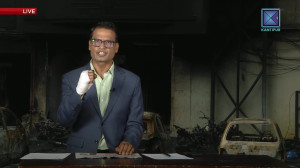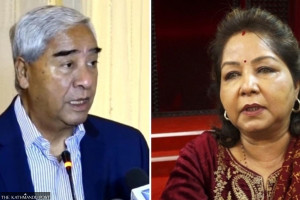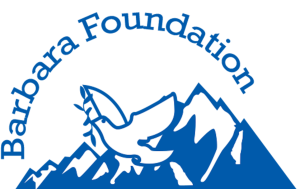Miscellaneous
Teach the children well
Guy Ullens says he lives in five-year periods, from a project to project. He dreams of new ideas, thinks about them incessantly
Weena Pun
Born to a Belgian diplomat in San Francisco 80 years ago, Ullens came to Nepal for the first time in 1973, with his first wife, Micheline Franckx, as a flora-loving tourist. By then he had already joined his “rotten” (as he puts it) family business, Raffinerie Tirlemontoise, a sugar-refining company in Belgium. But it’s not the species of rhododendron trees that he remembers from his three-week trek around the Lantang Valley, but deer, mating and wailing like dogs.
The second visit to the country would not take place until after 20 years, until he met his future, second wife, Miriam Lechien, a woman he describes as the “queen of pastry” with a heart for charity. He was immediately smitten by Lechien, who wanted to sell her company and get involved in humanitarian works. Until Lechien came along, Ullens had been unable to provide wings to his own philanthropic ideas. His parents would not allow him to sell the family business and do what he wanted to do. Coincidentally, when he met Lechien in 1991, two years had passed since Raffinerie Tirlemontoise had been sold to a German sugar group, Sudzucker, and Ullens had moved on to head the Spanish Artal Company, an agronutrients manufacturing business.
It would take Ullens eight more years to finally settle the divorce with his first wife and get married to Lechien, but his visits to Nepal would become more frequent in the intervening years. In 1992, Lichien came to Nepal and teamed up with Som Paneru, a social worker known for launching campaigns to end the Kamlari system, a practice that indentures Tharu girls into servitude. In 1996, Lichien launched the Happy Home Foundation, an orphanage, and began the slow, but phenomenal start of the Ullens School.
As Ullens couple provided shelter to orphans, the obvious next stop was to make sure the orphans did not grow up feeling abandoned and remain poor. The well-known means to escape poverty is education and the employment opportunities it opens up. During the conflict era, the Ullenses obtained permission from the Maoists to coach teachers in villages around the Dhulikhel area. But the project did not take off and the couple grew restless. Instead of relying on other schools to educate the orphans, they decided to open one.
Together with their long-time associate and friend, Paneru, they sent the current school principal Medin Lammichhane to attend a course in the Bank Street Graduate School of Education in New York and decided that a deserted rug factory in Khulmaltar would be the ideal space for the school. The Ullens School Foundation was officially registered in 2006 and three years later it became the only school in the country to run the International Baccalaureate (IB) diploma programme. Principal Lammichhane admits that the affiliation with the IB organisation would not have been possible without the patronage of the Ullenses.
For Baron Guy Ullens, the eponymous School is a story of success. Although the school is now associated with the rich and the wealthy and is out of reach of the common Nepalis, Ullens defends the school, saying that it is still a philanthropic gift to Nepal. The undertaking is an example for the rich in this country, he says. “If the wealthy come together and open a school like Ullens, they need not send their kids to India. All they need to do is build a strong team and see to it that Nepal provides quality education to its citizens,” says Ullens. “The goal is to create a cycle, in which a person soundly educated in Nepal educates other Nepalis.”
There is a confidence in the way he makes the assertion, something the baron has probably developed because of the trials and tribulations he has gone through. In the early 1980s, he tried to dabble in business ventures in China and India, but failed in both. In India, his projects did not even go beyond the conception phase. In China, he started a sugar refinery in 1985, but it was as a collector of Chinese arts that he would be famous. In Pakistan, where he introduced the KFC food chain in the 1990s, he says the venture just crashed.
Even in Nepal, he saw his dreams—to build a hydro facility for engineers at Kathmandu University and to link up the school with the Swiss Federal Institute of Technology in Lausanne—summarily shot down. Two out of his ten projects fail, says the Stanford graduate, and the obsession with which he treats each of his projects has taken its toll on him. In the beginning of every new project, he turns insomniac and becomes depressed and bad tempered. Four weeks ago he had an artificial pacemaker inserted in his heart. Old age is not helping either. He has lost count on the number of times he has had his hip operated on. “I think my brain is fine, but with an organ like that you can never tell,” he says.
As the Ullens School is now on firm footing, Ullens has decided to focus on China, where he wants to make works of art more easily available and affordable to the growing middle class. He has also bought a 50 percent share in two kindergartens in Beijing and will continue to invest in education. As for Nepal, he has been mulling over establishing a teachers’ academy for the last four years. When and if that idea comes to fruition, the impact of his philanthropy should be felt by a larger cross-section of Nepali students.




 19.45°C Kathmandu
19.45°C Kathmandu










